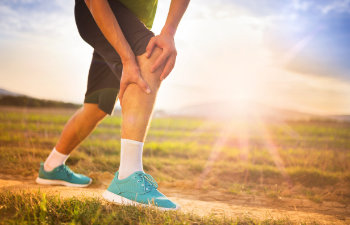
Knee dislocations, though relatively rare, are severe injuries that can cause significant damage to the knee joint and surrounding structures. Understanding the causes, symptoms, treatment and potential complications associated with knee dislocations is crucial for proper management and recovery.
A knee dislocation occurs when the bones that form the knee joint are displaced from their normal position. This displacement can involve the femur (thigh bone), tibia (shin bone) and patella (kneecap), resulting from high-impact trauma, such as car accidents, sports injuries or falls. The forceful impact or twisting of the knee can disrupt the ligaments, causing the joint to become completely displaced.
Signs of Knee Dislocation
Some of the immediate signs of a knee dislocation are severe pain, swelling, and visible deformity of the knee joint. Often, the affected individual is unable to bear weight on the injured leg. Additionally, there might be numbness or tingling sensations due to potential nerve damage caused by the dislocation.
Emergency medical attention is crucial for knee dislocations due to their severity. Emergency room staff will conduct a thorough physical examination and may perform imaging tests like X-rays, MRIs or CT scans to assess the extent of the injury, identify associated fractures and evaluate damage to ligaments, tendons, and blood vessels.
Knee Dislocation Treatment
Treatment for knee dislocations depends on the severity of the injury and associated complications. In some cases, the dislocated knee can spontaneously reduce, meaning it returns to its normal position without intervention. However, more severe cases may require manual manipulation by a medical professional to realign the joint, often performed under anesthesia. In severe cases, patients may be referred to an orthopedic specialist for treatment, like our team at Ortho Sport & Spine Physicians.
Complications associated with knee dislocations can be significant, particularly when multiple ligaments or structures are damaged. These complications may include ligament tears (such as the anterior cruciate ligament, posterior cruciate ligament, or collateral ligaments), blood vessel injuries, nerve damage, cartilage damage, and fractures. In severe cases, surgical intervention may be necessary to repair damaged structures and restore stability to the knee joint.
Recovery and Outcomes
Following the reduction of the dislocated knee, immobilization with a brace or splint is typically recommended to stabilize the joint and allow the surrounding tissues to heal. Physical therapy plays a crucial role in rehabilitation, aiming to regain strength, range of motion and stability of the knee joint. Rehabilitation may start with gentle exercises and gradually progress to more challenging activities as the knee heals.
Long-term outcomes following a knee dislocation vary depending on the severity of the injury and the effectiveness of treatment. While many individuals may recover fully with appropriate rehabilitation and therapy, others might experience long-lasting issues such as chronic instability, recurrent dislocations, or early onset of arthritis in the affected knee joint.
Preventing knee dislocations involves taking precautions during activities that involve high risk for knee injuries, such as wearing appropriate protective gear during sports and maintaining proper technique and form during physical activities. Additionally, maintaining strong muscles around the knee joint through regular exercise and conditioning can help reduce the risk of severe injuries.
Knee dislocations are serious injuries that necessitate immediate medical attention. Understanding the causes, symptoms, treatment options and potential complications associated with knee dislocations is crucial for prompt and effective management, leading to better outcomes and reduced long-term consequences for those affected. If you or a family member have suffered a knee dislocation and require specialized treatment, contact our team at Ortho Sport & Spine Physicians. We have many facilities throughout the country for your convenience.
Posted on behalf of

